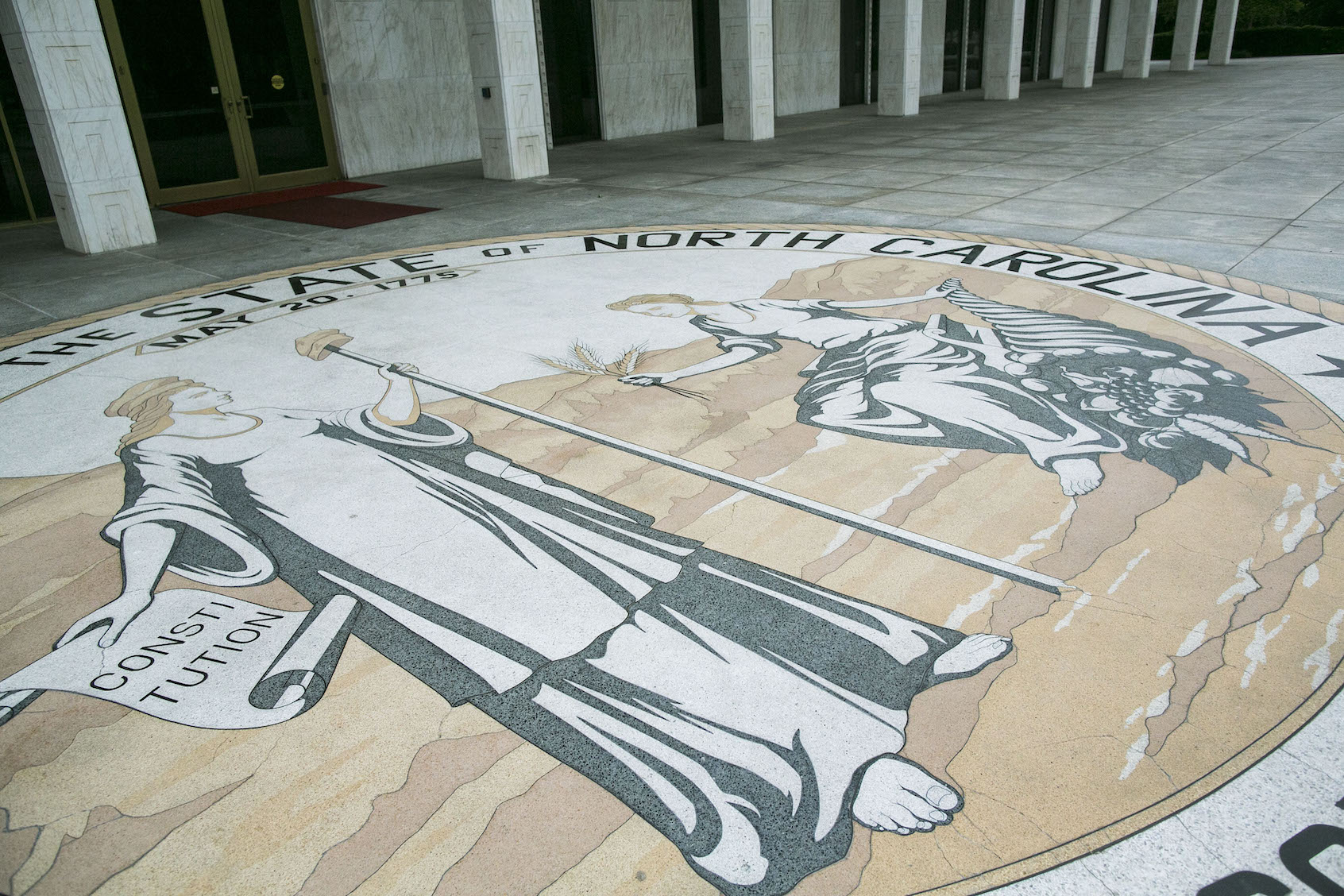World
North Carolina Chief Justice Paul Newby Reshapes State Judiciary

In early 2023, Paul Newby, the Republican chief justice of North Carolina’s Supreme Court, showcased the significant influence of his position over both state and national politics. Following a landmark ruling in 2022 by a Democrat-majority court that prohibited partisan gerrymandering, Newby, dissenting vehemently, expedited a rehearing that would allow for the redrawing of electoral maps favoring the Republican Party.
Newby’s rapid maneuvering began after two Republican justices joined the court, creating a 5-2 conservative majority. In January, GOP lawmakers filed a petition to revisit the gerrymandering case. This was a notable move, as since 1993, only two out of 214 rehearing petitions had been granted, and those were for minor corrections rather than significant constitutional reinterpretations. Skepticism surrounded the move, especially from lawyers involved in the original case, with Jeff Loperfido, chief counsel for voting rights at the Southern Coalition for Social Justice, expressing disbelief that the court would revisit such a recent decision.
Under Newby’s leadership, the court deviated from traditional practices by not convening all justices for a debate on the matter. Instead, a draft order for the rehearing circulated via email, allowing just over 24 hours for a vote, which the conservative justices quickly approved. This set the stage for a new ruling that legalized partisan gerrymandering, ultimately leading to a shift in North Carolina’s congressional representation in the 2024 elections. The state sent ten Republicans and four Democrats to Congress, a significant change that bolstered Republican control at the federal level.
Transforming the Judiciary
Since his election to the Supreme Court in 2004, Newby has increasingly influenced North Carolina’s judiciary, transitioning it from a relatively cooperative body to a politically charged institution. Critics argue that Newby has systematically dismantled longstanding barriers to politicization, advocating for partisan judicial elections and eliminating public funding. This shift has resulted in judicial campaigns becoming highly contentious, with significant financial backing from conservative donors.
As chief justice, Newby has consistently supported Republican initiatives that limit the powers of the state’s Democratic governor, despite voters electing Democratic leadership since 2016. He has also utilized his executive authority to reshape the court, including the removal of diversity initiatives and the replacement of liberal employees with more conservative figures. His strong Christian beliefs have guided his judicial philosophy, as he openly discusses the influence of his faith on his legal decisions.
Former justices and judges note that Newby operates more as a political strategist than an impartial jurist. He has filled the courts with former clerks and associates from his religious and political circles. His family’s connections to the Republican Party further amplify his influence; his wife is a notable GOP donor, and one daughter has played a key role in managing judicial campaigns.
Despite multiple requests for interviews, Newby has largely avoided media scrutiny. His daughter, acting as communications director for the North Carolina Republican Party, dismissed inquiries, suggesting that outside attention was unwelcome.
Legal and Ethical Controversies
The changes Newby has championed have drawn attention to ethical concerns within the judiciary. Critics highlight his participation in partisan political activities, including financial contributions to Republican candidates, which violates North Carolina’s judicial conduct rules. Newby has ruled in cases involving organizations with which he has personal ties, raising questions about his impartiality.
His influence spans beyond the courtroom, impacting significant state policies and administrative decisions. Newby has appointed individuals aligned with his conservative views to key positions, affecting regulatory decisions in areas like environmental protection and public health.
As the 2022 midterm elections unfolded, Newby played a crucial role in consolidating Republican power within North Carolina’s judiciary, a trend that has garnered national attention. His efforts have not only reinforced a partisan judiciary in North Carolina but have also set a precedent for similar movements in other states, indicating a potential shift in the landscape of state courts across the United States.
As Newby approaches the end of his term, his legacy is marked by a deeply politicized judiciary, raising concerns about the implications for judicial independence and democratic processes in North Carolina and beyond.
-

 World2 weeks ago
World2 weeks agoGlobal Air Forces Ranked by Annual Defense Budgets in 2025
-

 World2 weeks ago
World2 weeks agoMass Production of F-35 Fighter Jet Drives Down Costs
-

 Top Stories2 weeks ago
Top Stories2 weeks agoNew ‘Star Trek: Voyager’ Game Demo Released, Players Test Limits
-

 Top Stories2 weeks ago
Top Stories2 weeks agoDirecTV to Launch AI-Driven Ads with User Likenesses in 2026
-

 Science2 weeks ago
Science2 weeks agoTime Crystals Revolutionize Quantum Computing Potential
-

 World2 weeks ago
World2 weeks agoElectrification Challenges Demand Advanced Multiphysics Modeling
-

 Entertainment2 weeks ago
Entertainment2 weeks agoFreeport Art Gallery Transforms Waste into Creative Masterpieces
-

 Lifestyle2 weeks ago
Lifestyle2 weeks agoDiscover Reese Witherspoon’s Chic Dining Room Style for Under $25
-

 Health2 weeks ago
Health2 weeks agoGavin Newsom Critiques Trump’s Health and National Guard Plans
-

 Lifestyle2 weeks ago
Lifestyle2 weeks agoLia Thomas Honored with ‘Voice of Inspiration’ Award at Dodgers Event
-

 Entertainment2 weeks ago
Entertainment2 weeks agoFast & Furious Coaster Hits the Track at Universal Studios
-

 Health2 weeks ago
Health2 weeks agoResearchers Uncover New Insights into Cancer Mortality Causes









